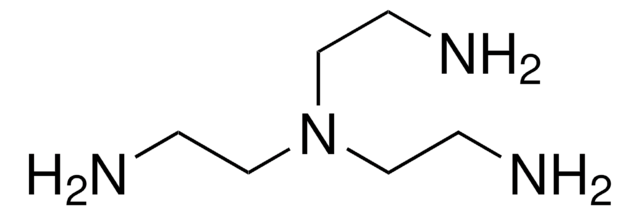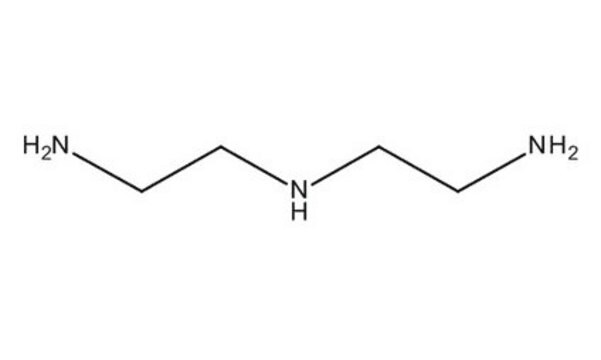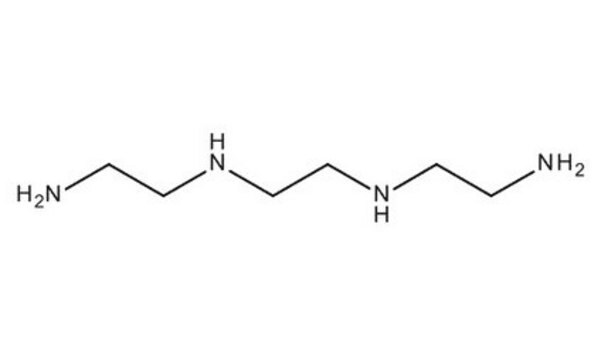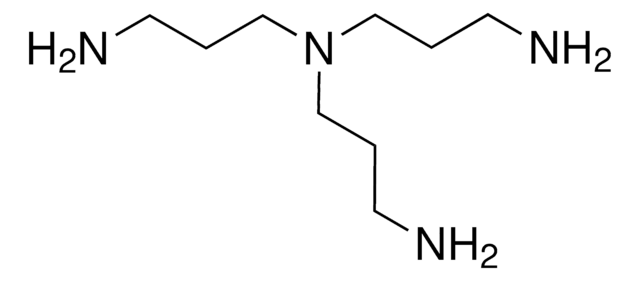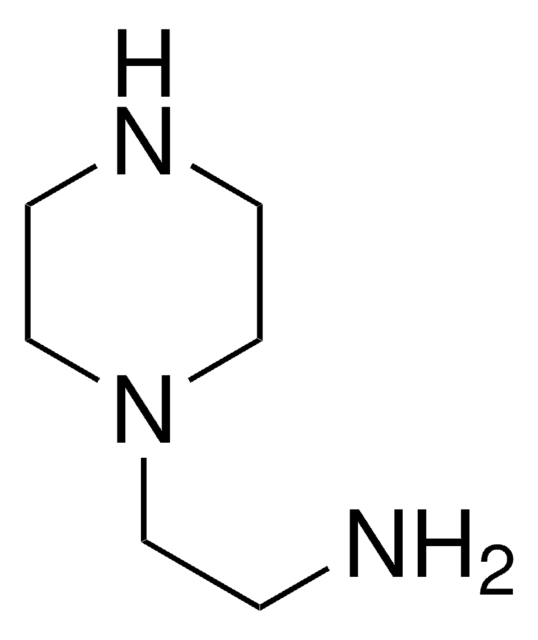D93856
Diethylenetriamine
ReagentPlus®, 99%
Synonym(s):
2,2′-Diaminodiethylamine, 2,2′-Iminodiethylamine, Bis(2-aminoethyl)amine
About This Item
Recommended Products
vapor density
3.6 (vs air)
Quality Level
vapor pressure
0.08 mmHg ( 20 °C)
product line
ReagentPlus®
Assay
99%
form
liquid
autoignition temp.
676 °F
expl. lim.
6.7 %
refractive index
n20/D 1.484 (lit.)
bp
199-209 °C (lit.)
mp
−35 °C (lit.)
density
0.955 g/mL at 25 °C (lit.)
functional group
amine
SMILES string
NCCNCCN
InChI
1S/C4H13N3/c5-1-3-7-4-2-6/h7H,1-6H2
InChI key
RPNUMPOLZDHAAY-UHFFFAOYSA-N
Looking for similar products? Visit Product Comparison Guide
General description
Application
Legal Information
Signal Word
Danger
Hazard Statements
Precautionary Statements
Hazard Classifications
Acute Tox. 2 Inhalation - Acute Tox. 4 Dermal - Acute Tox. 4 Oral - Eye Dam. 1 - Skin Corr. 1B - Skin Sens. 1B - STOT SE 3
Target Organs
Respiratory system
Storage Class Code
6.1A - Combustible acute toxic Cat. 1 and 2 / very toxic hazardous materials
WGK
WGK 1
Flash Point(F)
201.2 °F - closed cup
Flash Point(C)
94 °C - closed cup
Personal Protective Equipment
Choose from one of the most recent versions:
Already Own This Product?
Find documentation for the products that you have recently purchased in the Document Library.
Customers Also Viewed
Articles
Kanjiro Miyata (The University of Tokyo, Japan) provides insights on the rational design of polymeric materials for “smart” oligonucleotide delivery.
Our team of scientists has experience in all areas of research including Life Science, Material Science, Chemical Synthesis, Chromatography, Analytical and many others.
Contact Technical Service
